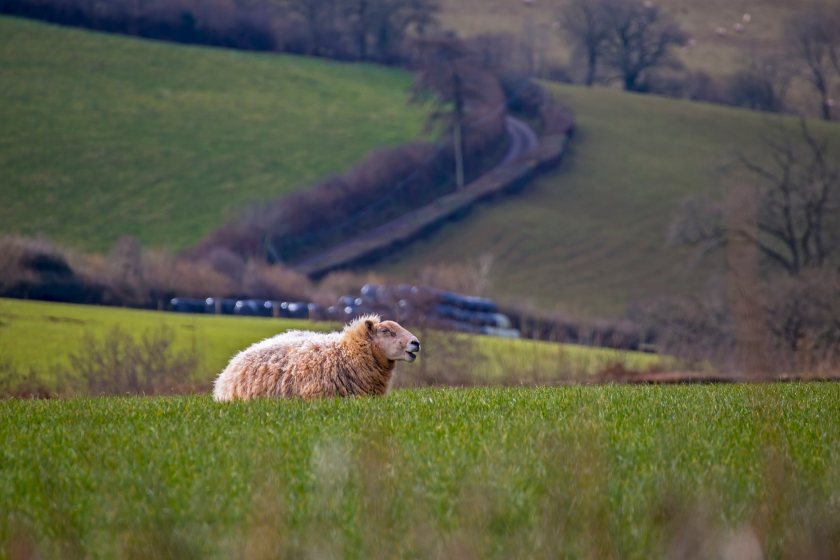
Defra has announced that the UK is now in a 'very low risk' period for bluetongue virus following the confirmation of 200 cases over the past year.
Midge activity is now lower due to a decrease in temperature, with midges not actively feeding, meaning the UK is now in a seasonally vector low period.
As a result, some restrictions currently in place to mitigate disease spread have now been removed, confirmed Christine Middlemiss, the UK's chief vet.
Bluetongue, which affects sheep, cattle and other ruminants. is a viral disease spread by biting midges, which affects all ruminants.
Since November 2023, the UK has recorded nearly 200 cases, the majority of them being the strain 'BTV-3', which is a relatively new strain first reported in the Netherlands.
Cases have since been reported in Belgium, Germany, France, Luxembourg, Denmark and Switzerland.
Ms Middlemiss confirmed that restrictions have now been removed, including rules for post-movement testing of animals out of the bluetongue 'restricted zone', which covers vast swathes of England.
The use of insecticide on transport vehicles has also been removed, as well as the need to send animals moving outside of the restricted zone for slaughter to designated abattoirs.
However, as a precautionary measure, the restricted zone currently in place across affected regions along the east and south coast of England will remain.
All animals moving out of the zone will still require a pre-movement test unless going direct to slaughter or to a dedicated slaughter market.
Ms Middlemiss said discussions are still continuing with the farming industry on the next steps for this.
She said: "We are now in a seasonally vector low period when midge activity is lower with a significantly reduced risk of disease from biting midges, meaning we can ease some of the measures in place to mitigate disease spread.
"However, I would urge farmers to remain vigilant and report any livestock they suspect have the disease to APHA.
"We are committed to working with everyone affected and will continue to keep the restricted zone under review."
Bluetongue virus is a notifiable disease, and suspicion of it in animals in England must be reported to the Animal and Plant Health Agency on 03000 200 301.
